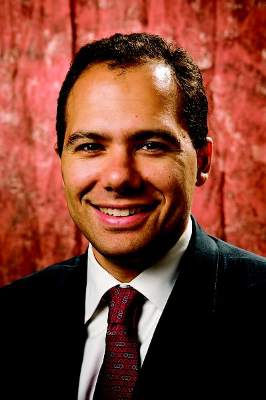The fate of several high-profile health care cases remains uncertain after the death of U.S. Supreme Court Justice Antonin Scalia.
The eight remaining justices will hear oral arguments on and weigh in on a range cases this term. Justice Scalia’s death however, means the possibility of a tie vote in some cases, which could lead to conflicting case law across states.
“Most Supreme Court decisions are not decided on a 5-to-4 split, so presumably regular business will continue as to most of the cases they are deciding,” said Timothy S. Jost, health law professor at Washington and Lee University in Lexington, Va. “However, for some of the most important cases in health care – like the abortion decision or the contraceptive decision – it was likely there was going to be a 5-to-4 split. Of those cases, the justices can either hold them over or vote, in which case there [could] be a 4-to-4 split.”
If the court divides equally on a case, the lower court’s decision is affirmed. But the case would not have a Supreme Court precedent, meaning the lower ruling would apply only in the circuit court’s jurisdiction, said Eric J. Segall, a professor of law at Georgia State University, Atlanta.
In Whole Woman’s Health v. Cole , also known as Whole Woman’s Health v. Hellerstedt, for instance, a split would uphold an appellate decision that allowed abortion restrictions in Texas to go forward. In that case, the state is battling health providers over a mandate that abortion providers must have admitting privileges at a hospital within 30 miles and that abortion clinics must meet the same requirements as those of ambulatory surgical centers (ASCs). The 5th U.S. Circuit Court of Appeals ruled that the regulations do not impose an undue burden on a patient’s right to get an abortion.
“If a 5-4 [Supreme Court decision] upheld those restrictions, that would be national law for the whole country, and it would be a huge deal,” Mr. Segall said in an interview. “If it’s a 4-4 tie, than in Texas and two other states, the Texas decision would still be good law, but it would have no effect outside that circuit.”
In the case of Zubik v. Burwell however, a split vote would mean nationwide differences in how the Affordable Care Act’s contraceptive mandate is applied, said Ilya Shapiro, a senior fellow in constitutional studies at the Cato Institute. The Zubik case centers on whether the ACA contraceptive-coverage mandate and its “accommodation” violates the Religious Freedom Restoration Act by forcing religious nonprofits to act in violation of their beliefs. The 8th U.S. Circuit Court of Appeals struck down the exception twice, ruling that forcing organizations to offer contraceptive coverage – even indirectly – violates their religious rights. The 8th Circuit’s decisions are at odds with rulings by the 2nd and 5th Circuits.
Because of the conflicting lower court opinions, if the Zubik case were decided 4-4, “the regulation [would be] in place in parts of the country and not in others,” Mr. Shapiro said in an interview. “That seems untenable. Cases like that especially, the court would likely delay the arguments that are currently scheduled until the next term.”
Justices can decide whether to vote or rehear cases that were already heard with Justice Scalia in attendance, but are not yet decided. They can also dismiss or wait to address cases next term. Decisions that were made with Justice Scalia’s vote, but were not yet published, will be void, Mr. Shapiro said. As for Justice Scalia’s replacement, Mr. Shapiro noted that even if President Obama makes a nomination and it is confirmed by the Senate, it would be too late to consider cases this term.
Mr. Segall stressed that it’s too early to tell how Justice Scalia’s death will impact ongoing and future cases and the court as a whole.
“We don’t really have a precedent for this,” he said. “We’ve had vacancies before, but we’ve never had a vacancy in an election year where [the Court comprised] four conservative Republicans and four liberal Democrats. I think we should all step back. There are so many imponderables.”
Supreme Court analysts predict the eight justices will announce their decisions – or lack thereof – during the last week of June.
Justice Scalia was known as the high court’s most vocal conservative and was the longest-serving current justice on the court, hearing cases for 29 years.
What’s on the docket?
The Supreme Court is set to decide a number of significant health law cases this term. Here are some of the most pressing ones and the issues at stake.
Argument date: March 23, 2016
The court will decide whether an accommodation under the ACA contraceptive mandate violates the Religious Freedom Restoration Act by forcing religious nonprofits to act in violation of their beliefs, when the government has not proved that this compulsion is the least restrictive means of advancing a compelling interest. The accommodation clause refers to an exception for organizations that oppose coverage for contraceptives but are not exempted entities such as churches. The plaintiffs argue the process serves as a trigger that enables contraceptive use and makes the groups complicit. The government argues the exception does not impose a burden on the groups and that courts should not disregard the interest of employees who may not share employers’ religious beliefs.
Argument date: March 2, 2016
Justices will weigh whether two Texas regulations place an undue burden on a woman’s right to access an abortion. The regulations mandate that abortion providers have admitting privileges at a hospital within 30 miles of an abortion clinic in order to provide the service, and that all abortion clinics meet the same requirements as those of ambulatory surgical centers (ASCs). The plaintiffs, who are clinics and doctors, argue that both restrictions are unnecessary and limit access to abortion services. The Texas Department of State Health Services states the restrictions are reasonable and effective measures that raise the standard of care for abortion patients and ensure health and safety. The case is sometimes cited as Whole Woman’s Health v. Hellerstedt.
Universal Health Services v. United States ex rel. Escobar
Argument date: To be determined
In question is whether the legal theory used by the federal government to bring False Claims Act (FCA) lawsuits is valid. The case centers on a patient who died after receiving care by Universal Health Services Inc. (UHS) in Lawrence, Mass. The patient’s parents sued UHS under both the federal and state False Claims Act laws alleging that UHS providers were improperly licensed and made fraudulent government claims. The Supreme Court will answer whether the implied certification test for determining when claims “sufficiently plead falsity” under the FCA is constitutional and if so, if the relevant statute needs to explicitly state the conditions of payment with which the defendant allegedly failed to comply. Physician associations are concerned that a ruling for the plaintiff will expand the FCA’s reach and increase false claim lawsuits against health providers.
Gobeille v. Liberty Mutual Insurance Company
Argument date: Dec. 2, 2015
The Supreme Court will decide whether a self-funded insurer must share certain information, such as claims and member data, with Vermont’s all-payer database. The state argues the information is needed to improve the cost and effectiveness of health care and that an adverse ruling would chill reform efforts in other states with similar databases. Liberty Mutual, which maintains a self-insured health plan for its employees, argues that the Employee Retirement Income Security Act of 1973 (ERISA) preempts state statutes that provide for “all payer” health care databases, and that it does not have to supply the information. Analysts say the case will ultimately decide to what extent federal law can facilitate the centralized management of health care.
On Twitter @legal_med



